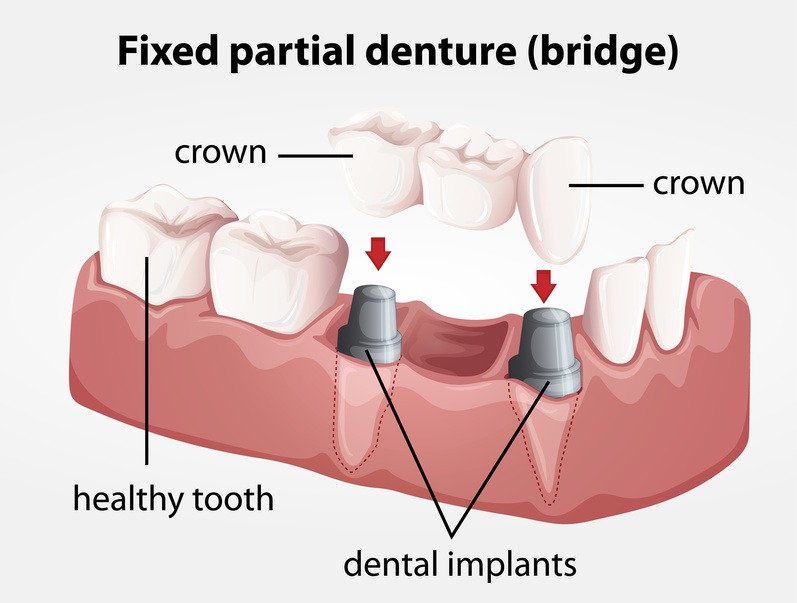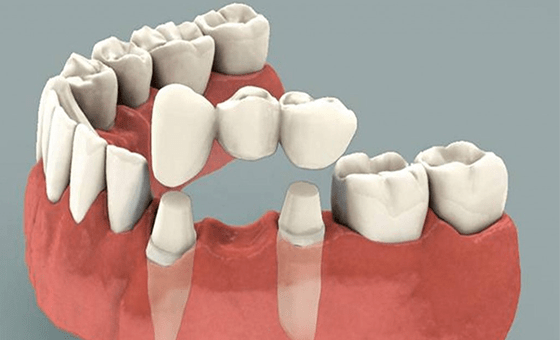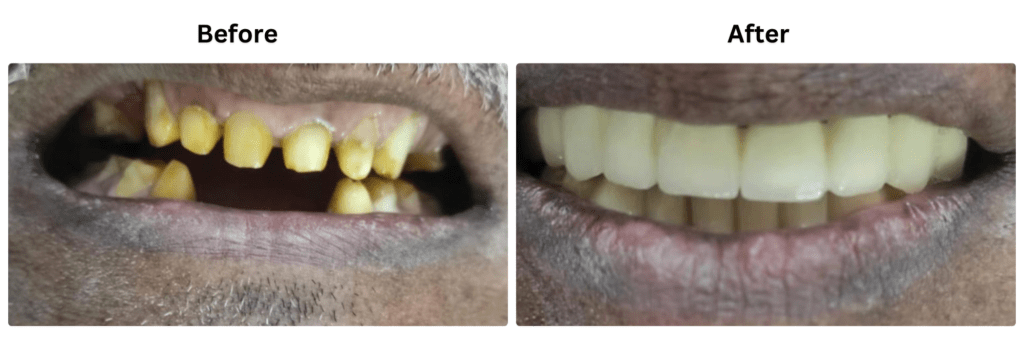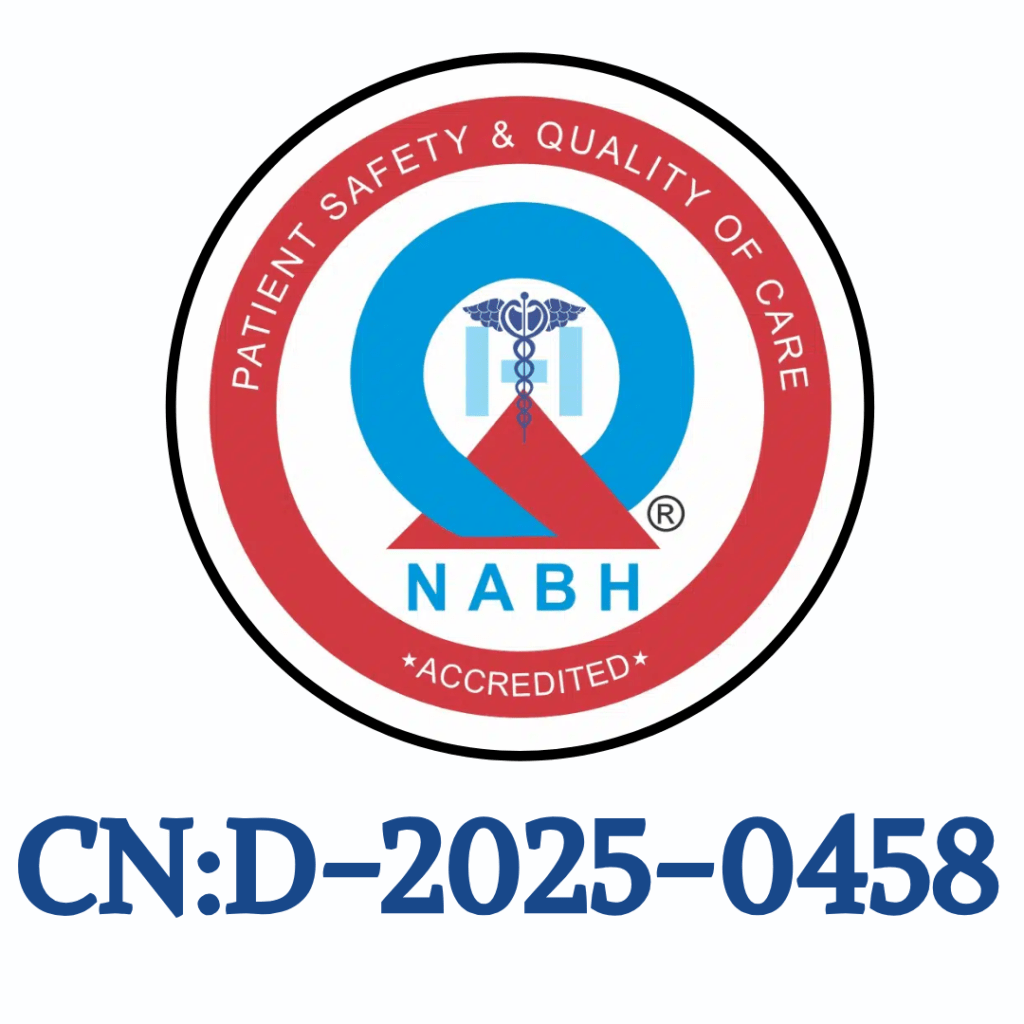WHAT ARE FIXED PARTIAL DENTURES?
Fixed partial dentures are like bridges for your teeth. They’re used when you’re missing one or more teeth, filling in the gap with artificial teeth that are attached to the surrounding natural teeth. These dentures stay in place and can’t be removed like regular dentures. They help you chew better and keep your other teeth from moving around.






PROCESS FOR GETTING FIXED PARTIAL DENTURES
- Consultation: During this visit, your dentist will examine your mouth, discuss your dental history, and determine if fixed partial dentures are the right option for you.
- Treatment Planning: Once fixed partial dentures are deemed suitable, your dentist will create a treatment plan tailored to your specific needs. This plan will outline the number of teeth involved, the type of bridge needed, and the materials to be used.
- Tooth Preparation: If neighboring teeth need to serve as anchors for the bridge, they will be prepared by removing a small amount of enamel. This creates space for the bridge to fit comfortably and securely.
- Impressions: Next, impressions of your teeth are taken using dental putty or digital scanning technology. These impressions serve as a blueprint for creating custom-fit fixed partial dentures that seamlessly blend with your natural teeth.
- Temporary Bridge: While your permanent bridge is being fabricated in a dental lab, your dentist may provide a temporary bridge to protect your prepared teeth and maintain your smile’s appearance.
- Bridge Placement: Once your permanent bridge is ready, you’ll return to the dentist for its placement. The bridge will be carefully checked for fit and adjusted as needed before being permanently bonded into place using dental cement.
- Final Adjustments: Your dentist will make any final adjustments to ensure that your bite feels comfortable and natural. This may involve fine-tuning the shape or height of the bridge to optimize function and aesthetics.
- Aftercare Instructions: Before you leave the dental office, your dentist will provide you with detailed aftercare instructions. These may include tips for maintaining oral hygiene, dietary recommendations, and information on regular dental check-ups.
- Follow-Up Visits: It’s important to attend follow-up visits with your dentist to monitor the stability and effectiveness of your fixed partial dentures. Your dentist will assess your oral health and make any necessary adjustments to ensure long-term success.
| BEFORE TREATMENT:
- Meeting with the dentist to evaluate oral health and explore available treatment options.
- Tooth preparation for anchoring the bridge, if necessary.
- Impressions taken to create custom-fit dentures.
| AFTER TREATMENT:
- Permanent bridge carefully placed and bonded to anchor teeth.
- Final adjustments made for comfort and functionality.
- Follow-up visits are scheduled for monitoring and maintenance.
| CONCLUSION :
In conclusion, fixed partial dentures offer a transformative solution for those seeking to restore their smile’s integrity and functionality. With their seamless integration and lasting durability, these bridges not only bridge the gap left by missing teeth but also rejuvenate confidence and oral health, paving the way for a brighter future ahead.
FAQ
Most frequent questions and answers
Fixed partial dentures are dental appliances used to replace missing teeth. They’re securely attached to neighboring natural teeth or dental implants, restoring your smile and helping you chew better.
With proper care and regular dental check-ups, fixed partial dentures can last for many years, often a decade or more.
Eventually, they might require replacement as a result of regular usage and deterioration.
Yes, fixed partial dentures are custom-made to blend seamlessly with your natural teeth in color, shape, and size. This ensures they look and feel as natural as possible.
Proper oral hygiene is essential for maintaining fixed partial dentures. Brush them gently twice a day with a soft-bristled toothbrush and floss regularly. Also, visit your dentist for professional cleanings and check-ups.
Initially, you may need some time to adjust to eating with fixed partial dentures. However, once you’re accustomed to them, you should be able to enjoy a wide variety of foods just like with natural teeth. Avoiding overly hard or sticky foods can help prevent damage to the dentures.


